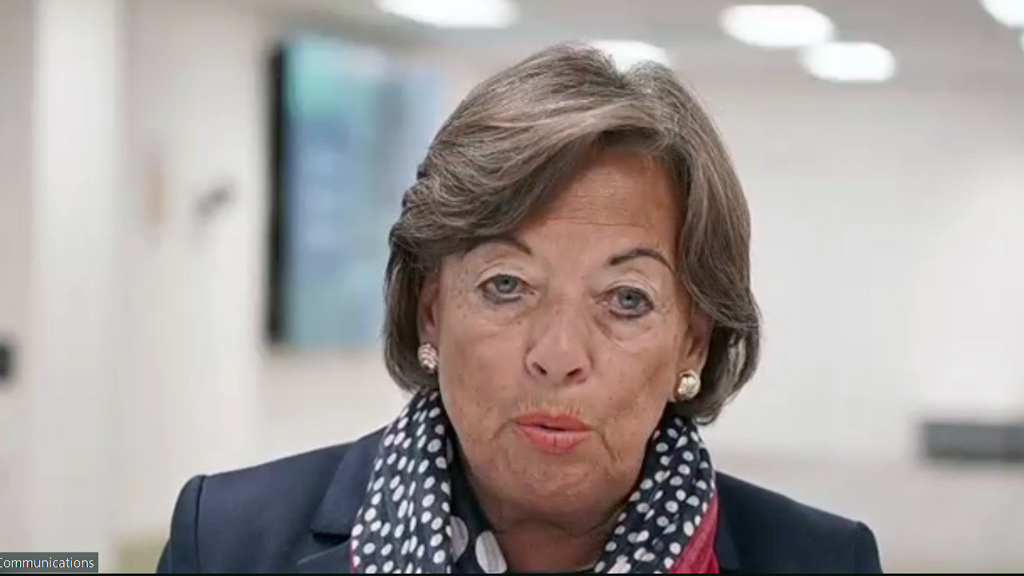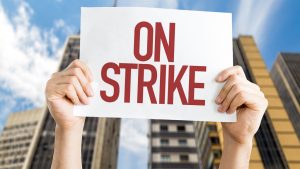Workplace Safety and Insurance Board (WSIB) chair Elizabeth Witmer said in a recent interview that the agency remains financially sound despite having to pay out almost 15,000 COVID-19 claims since the start of the pandemic.
Witmer acknowledged there were more than a few sources of stress on the system on both the revenue and payout sides but said they are not yet adding up to financial trouble.
“We’re keeping our eye on the financial situation and if there are any signs of a problem, we’re going to have to regroup and we’re going to have to prioritize, but the plan right now, and the situation right now, is that we continue to be in a strong financial position,” said Witmer, who in the fall was appointed to another term extending to the end of this year.
The strong position stems from the board’s efforts to eliminate the WSIB’s unfunded liability (UFL), which in 2012 sat at $14.1 billion, Witmer said. The fund has been in a surplus since 2019 and even with additional COVID pressures, as of Sept. 30, 2020, the WSIB had a sufficiency ratio of 116.6 per cent, which is up from 111.6 per cent at the close of 2019.
“If we had a massive UFL as we did back in 2012, I will say we would have had some tough decisions. We would absolutely have had to increase premiums,” said Witmer. “We may have had to look at decreasing services, but there is fiscal prudence. We are doing everything we can in order to respond to the needs of injured people, people who are ill.”
As of Feb. 5, the WSIB had allowed 14,823 COVID-19 claims, 121 of which have come from the construction industry.
Ontario General Contractors Association director of government relations David Frame suggested a reckoning is coming for the board and that it’s imperative for the board to prepare for possible dire circumstances.
“COVID has presented the board with challenges they haven’t even begun to look at yet,” said Frame.
“The fact is that COVID had a big impact on the WSIB, and the assumptions that underlie the act. It’s caused disruptions that have stopped or slowed workers returning to work. Those costs go directly on the employer’s record, and that’s going to put a significant pressure on premiums in the years coming to pay for those costs.”
The challenge, Frame said, is that for hundreds or thousands of workers who went off work because of workplace injury, in many cases there were no jobs for them to return to due to government-enforced shutdowns or business closings. The WSIB is paying for the cost of continuing WSIB coverage for those workers when the reason they’re not employed is COVID-shutdown related, he explained.
“We’ve asked the WSIB to tell us what the impact is,” he said. “And we’re asking for a policy discussion on how that should be done.”
Frame also suggested when the WSIB deferred premium payments last year, it would have caused a cash flow problem.
Witmer responded, “We’re reviewing the situation regarding whether or not there is a business to go back to, is there another plan to return these people to work.
“For a while there, there was a deferral of their payment obligations to us at the WSIB. So one of the issues we need to make sure of as we go into 2021 is that we have accurate information regarding the status of the business. How many people are they currently employing compared to what they were employing before?”
Addressing the cash-flow issue caused by deferrals, Witmer noted approximately 190,000 businesses took advantage of the WSIB’s COVID financial relief program, representing about $900 million in interest-free deferred premiums compared to 2019 levels. So far, almost half of those businesses have repaid their deferred premiums representing roughly $650 million of the anticipated amount, with those that continue to defer payment having until June 30, 2021 to make the repayments without interest charges.
The chair commented on a government paper released last fall but prepared long before that that contained 25 recommendations for WSIB reforms.
The report, called The WSIB in Transition and prepared by consultants Linda Regner Dykeman and Sean Speer, said modernization was a “top priority.”
Frame said the WSIB has taken large strides in the past few years to modernize its systems, but said many of the report’s recommendations are now largely “irrelevant” because of the COVID-19 pandemic.
Witmer explained the report, prepared for the government, had not been officially forwarded by the government for action.
“We don’t know what else they’re going to do with it,” said Witmer.
“If modernization is the top priority, we did take steps in order to ensure that we could implement some of the recommendations. We have improved our online services.”
Witmer noted former WSIB CEO Tom Teahen’s term had officially ended Jan. 31 with Tom Bell now serving as acting CEO. Asked when a full-time CEO would be named, Witmer said that was in the government’s hands.
Follow the author on Twitter @DonWall_DCN.








The Covid issue again highlights the fundamental flaw in the insurance scheme with respect to an industry that employs temporary workers. From initial entitlement for injuries resulting from long term activities with multiple employers, to financial penalties for claims costs and frequency counts. The current system does not serve the industry fairly. It creates unnecessary conflict between employers and workers, (who have to fight to receive benefits they should be entitled to receive), and unfairly penalizes employers for claims/costs they cannot control. A review of the system is long overdue. It’s been over 100 years since Meredith proposed the principles that form the foundation of the current system, principles I would argue that have been broken. The world has changed significantly since then and the nature of work and employment continue to undergo major adjustments. Continuing to do the same thing over and over and expecting different results is insanity.